Taste the Difference: Connor’s Launches New Stout Porter Xtra Malt
September 29th, 2025
In a city that has no shortage of restaurants jostling to stand out, JOLOKO doesn’t even seem to try — it makes a splash just doing its own unique thing. Tucked into a converted colonial-era bungalow just by the imposing Stripes hotel, this bright and boisterous venue serves up Afro-Caribbean flavours, a deep list of terrific spirits, and a consistently good time. It’s the kind of place you remember, even if you can’t recall everything you drank. On our recent visit, we kept coming back to “fun” and “irreverent” as the go-to descriptors for this laid-back eatery that delivers enough pizazz to have landed itself on the world’s “50 Best Discovery” list.
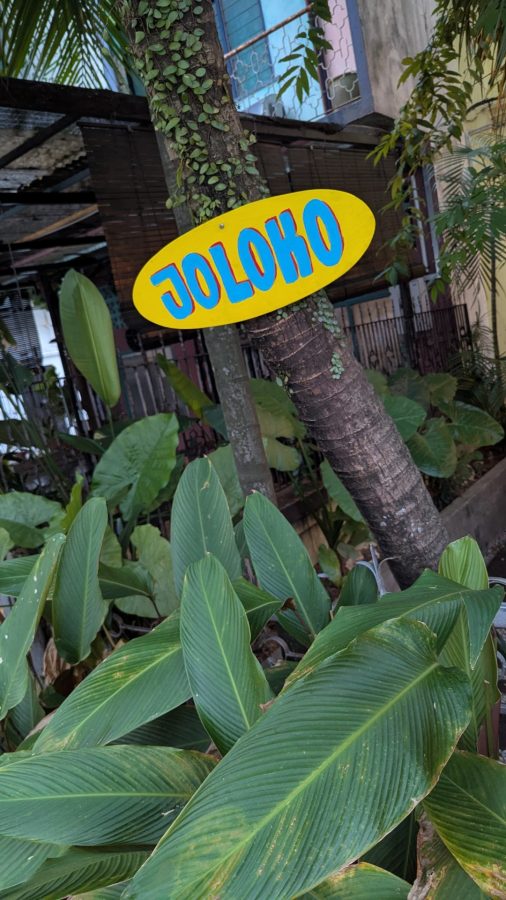

The restaurant’s exterior alone hints at what’s inside: colourful murals, a bold and funky façade, and a courtyard lit with tropical vibes. But step through the door and things shift into a sharper gear — tribal masks on textured walls, vintage reggae posters, hand-painted tiles, and a playlist that bounces from Afrobeat to Latin funk. JOLOKO may be many things, but forgettable isn’t one of them. We were smitten right from the start, and we hadn’t even placed our orders!
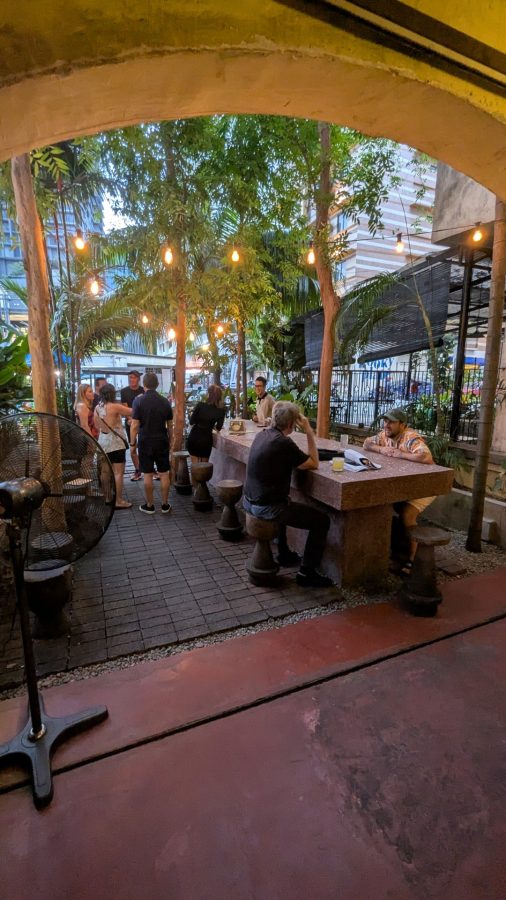
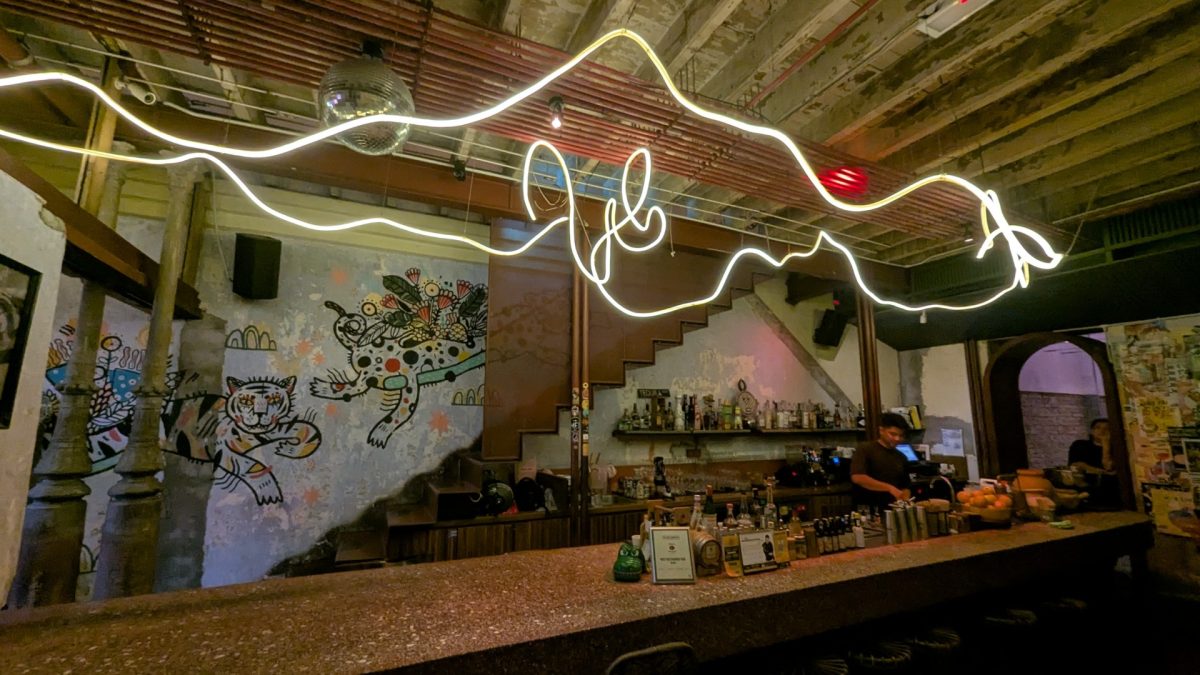
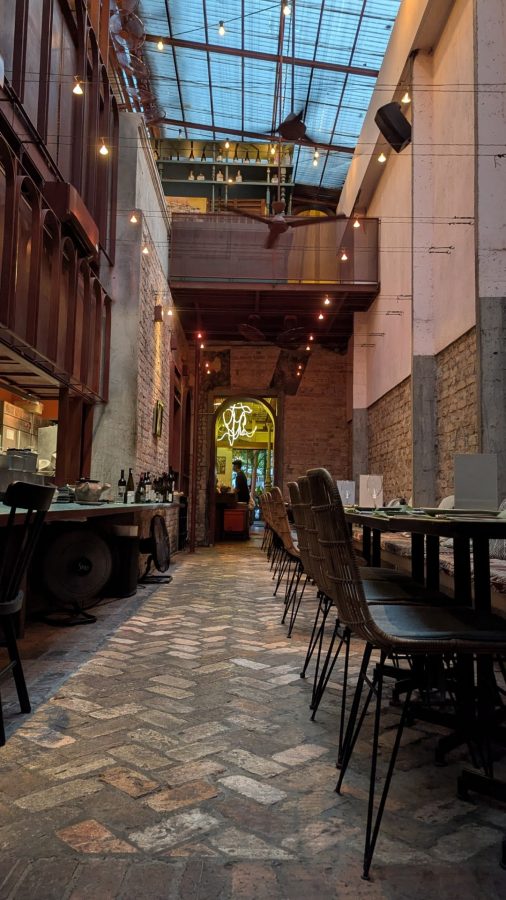
The kitchen also plays to bold flavours, often smoky and spiced, with plenty of wood-fired action. Helmed by the personable Chef Susu, who hails from Nigeria, the kitchen turns out a fabulous array of unconventional and delicious dishes. Jamaican jerk chicken, grilled lamb rack with an African peanut sauce, and Picanha beef skewers all come with a punch, while their sides — from young okra with palaver sauce (RM25) to Chef Susu’s smoky West African jollof rice (RM20) — feel anything but ornamental.
The menu leans on the shared plates concept, and even offers up ordering tips, but portions are hearty enough that nobody goes home hungry. Start with a dip like walnut hummus and pomegranate molasses (RM30) or refried beans agayin with corn salsa (RM25), each served with flatbread. Then, we recommend trying one of their most well-known dishes, the guava-glazed prawn tostadas (RM50). The watercress, cashew, and coconut salad (RM25) is an appealing vegetarian option, and indicative of the general state of creativity present on JOLOKO’s menu.
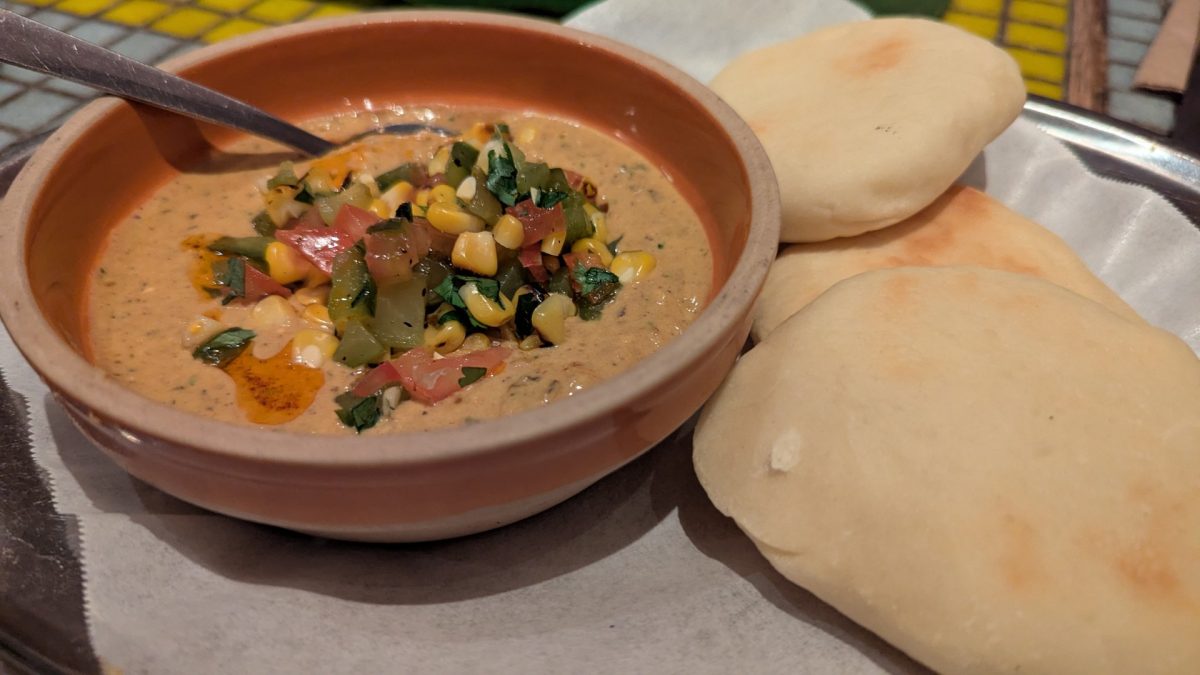
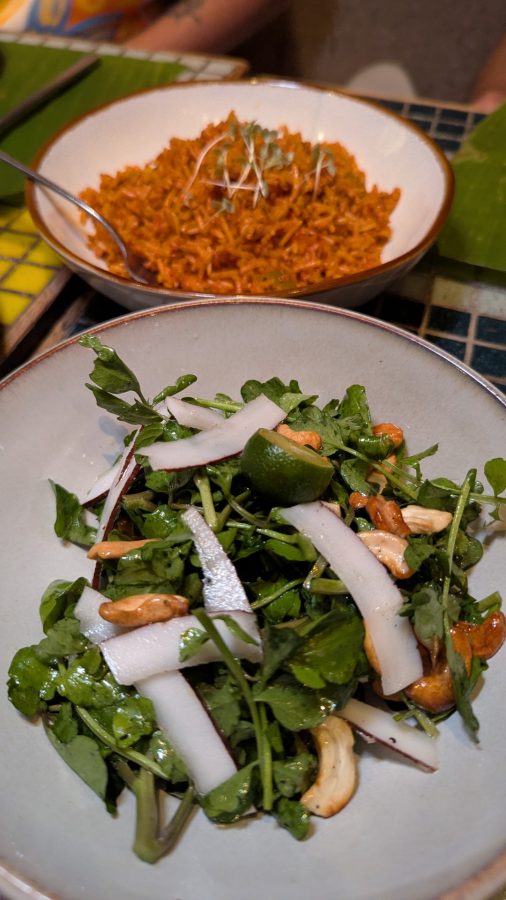
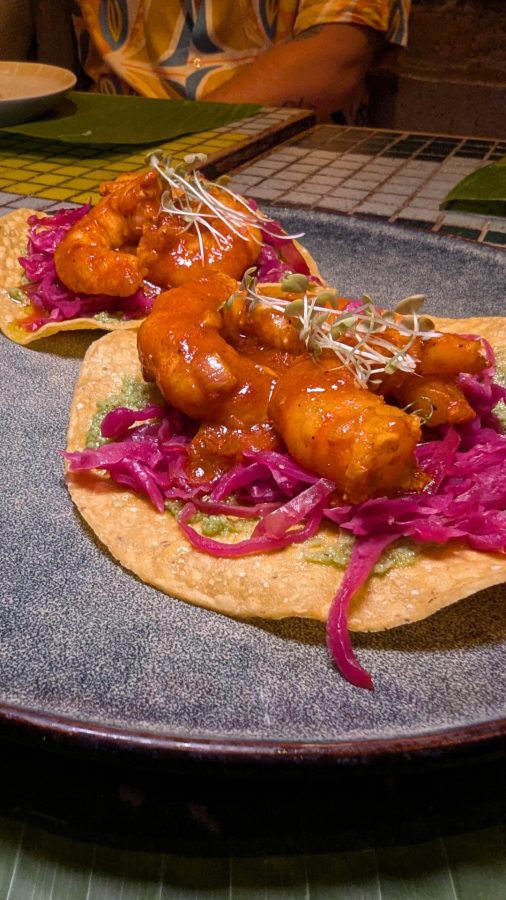
For our meat dishes, we tried the Picanha beef with a fire-roasted salsa and a funky dawa-dawa sauce centred around the African locust bean (RM195, about 500g), which was delicious, and also a plate of grilled goat ribs with shatta sauce (RM65). The selections on the mains menu are limited to just eight, but all of them sounded quite appealing to us, and even though the number of options wasn’t overwhelming at all, we still had a hard time choosing!
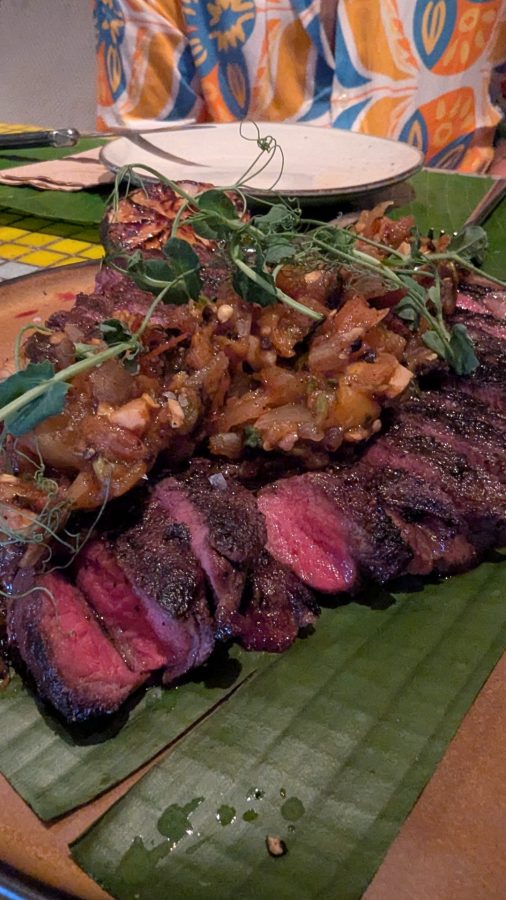
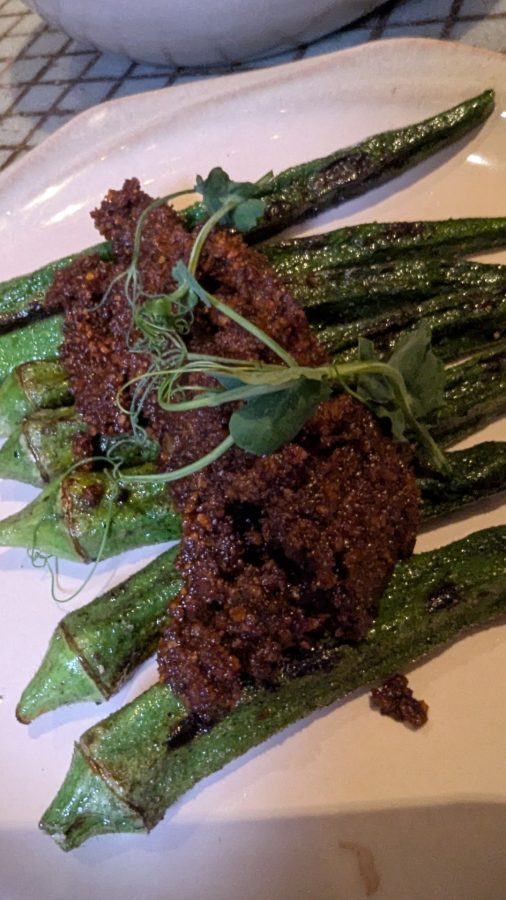
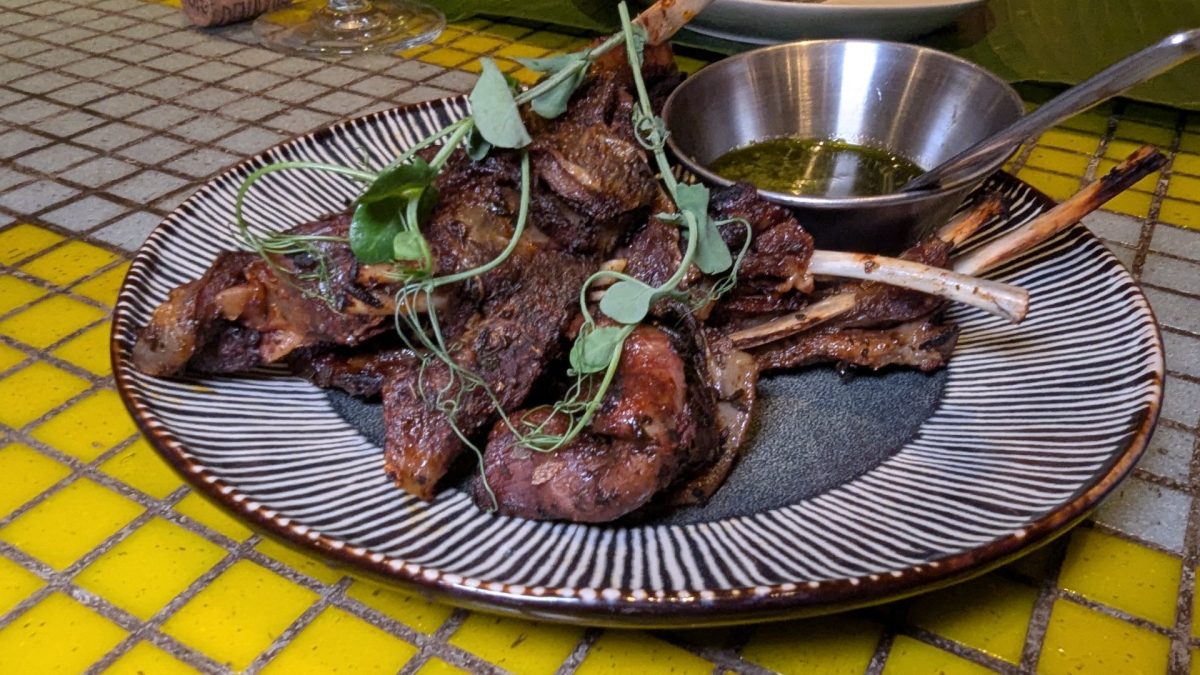
Desserts are just as funky, and we enjoyed the chili cheesecake and a fried coconut patty with ice cream, which was a lovely sweet finish to the meal.
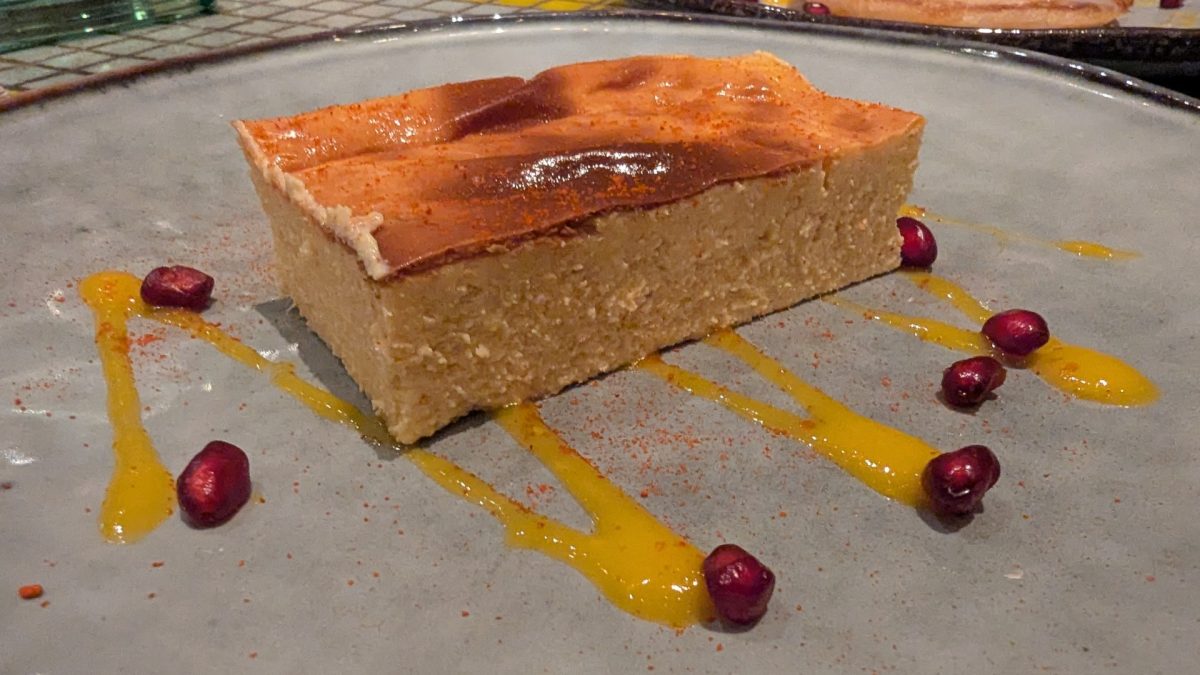
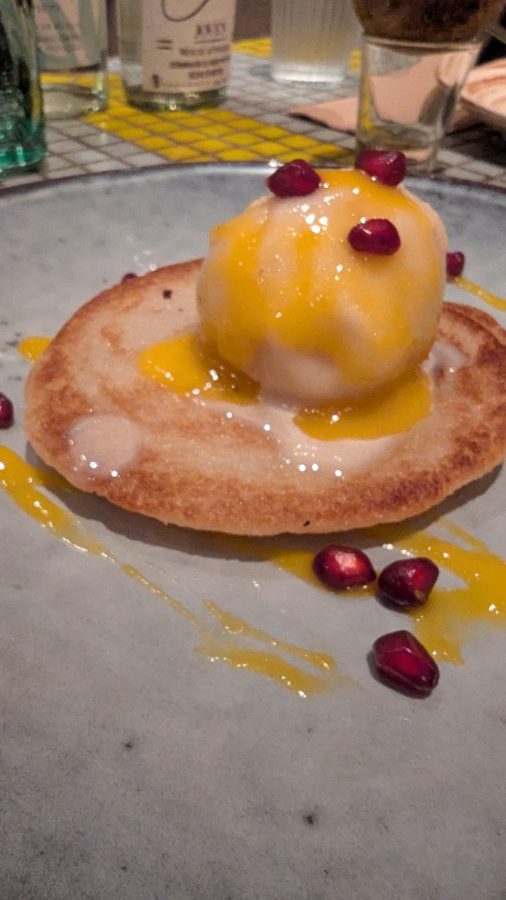
Behind the bar, things get serious — but never too serious. The mezcal and tequila collection is easily one of the city’s best, and the rum range is quite good, too spanning funky agricoles to Caribbean-aged sippers. And on the mezcal side, if you want to learn more about this wonderful category of Mexican agave spirits, JOLOKO’s proprietor, Rick Joore, will be happy to oblige. Mezcals and tequilas here are served in jicara, a small coconut-looking shell that’s hand-carved in Mexico from the dried fruit of the calabash tree, lending a memorable touch of authenticity to the experience – and we love sipping on a nice mezcal! Meanwhile, the cocktail list is playful, peppered with fresh fruit, smoky bitters, and unapologetic chilli heat. Even the non-alcoholic options get creative treatment, with fermented and spiced sodas that complement the food beautifully.
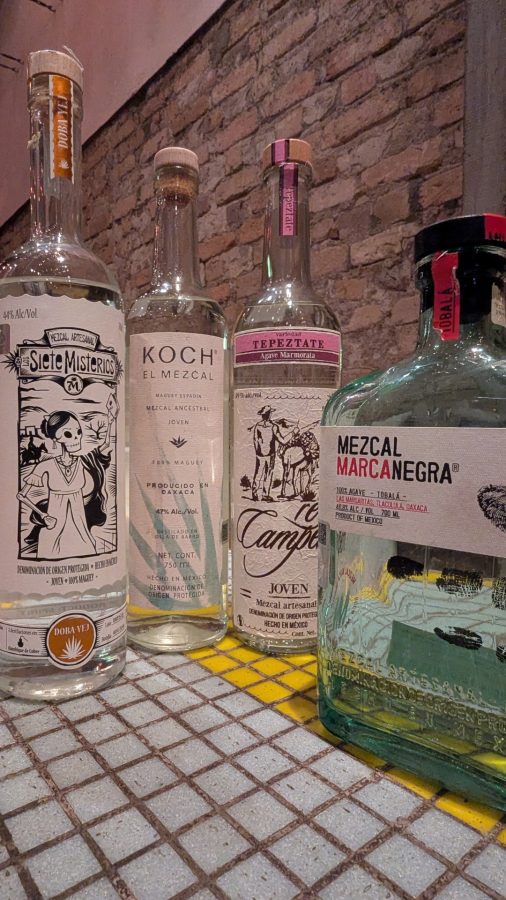
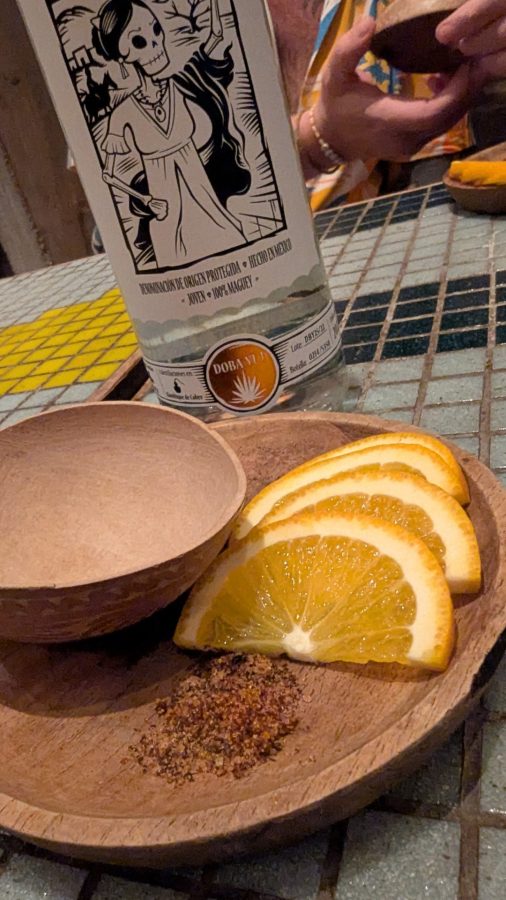
Taking a deeper dive into the beverage offerings, JOLOKO lists just shy of 100 wines by the bottle and seven by the glass. These are listed under headings like pink, red, sparkling, white and orange. Vintages, country of origin, and prices are listed beside the name of each wine, and a brief description, such as ‘Mr Fantastic,’ ‘vibrant, rose petals, and spices,’ ‘like an episode of The Big Bang,’ and ‘a blend made in heaven.’
Even serious wine drinkers will likely need assistance with the wine list, as JOLOKO’s management have a bias toward organic, biodynamic, natural, and wines produced from lesser-seen grape varieties. They also argue that the aromatic wines in the selection pair well with the spiciness of the dishes offered in the outlet.
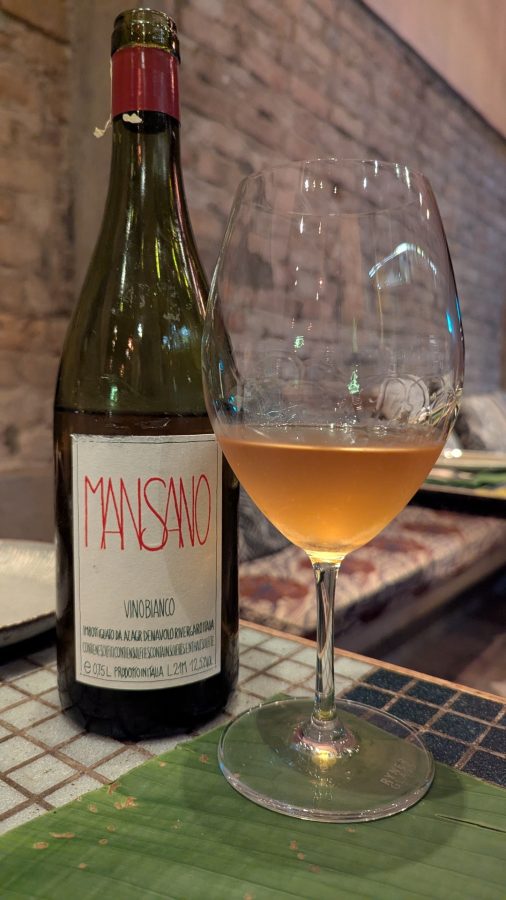
While we identified most of the grape varieties on the wine list, we only recognized a few labels such as Chakana, Alpha Box and Dice, Misha’s Vineyard, and Wine Men of Gotham. It was not long before we were seeking the advice of Rick, the founder. He is enthusiastic about the carefully curated wine list, and wine drinkers are recommended to dine here with an open mind and leave most of the selection in the hands of the staff.
Organic wine production is on the rise, as is biodynamic winemaking, although the uptake of Rudolf Steiner’s practices is a little slower. It’s fair to mention that few consumers would take issue with organic viticultural practices, as it minimizes the use of artificial chemicals and ultimately leads to a healthier life for us all. The other kicker with organic wines is that they are not perceivably different in their taste from other wines.
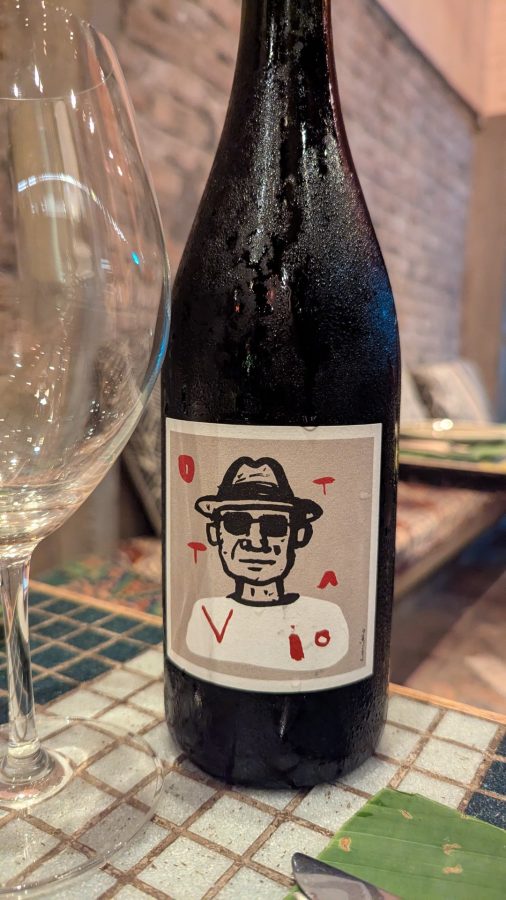
Biodynamic wines are another beast altogether. This agricultural practice is based on the philosophy of Austrian-born Rudolf Steiner (1861-1925), whose early work focused on science, the classics and philosophy. His teaching methods guide hundreds of schools around the globe, and a growing congregation of winemakers is signing up, too.
Biodynamic viticulture, once viewed as fringe, is gaining quiet traction among winemakers for several reasons, including seeking resilience against climate volatility. First outlined in the 1920s by Steiner, the method treats the vineyard as a living ecosystem, aligning agricultural tasks with lunar and celestial cycles.
Unlike organic certification, which focuses on the absence of synthetic chemicals, biodynamics goes further, requiring herbal compost preparations and strict adherence to planting calendars. Vintners bury cow horns filled with fermented manure in winter, then unearth and dilute the contents as a soil stimulant directed to restoring microbial life.
While some winemakers have become card-carrying members of the biodynamics school of agriculture for romantic or philosophical reasons, others seek out more practical outcomes such as healthier soils, disease resistance, and wine with site-specific character. For growers grappling with erratic weather and depleted soil, biodynamics offers a toolkit to re-engage with land on more intimate terms. For drinkers, it often translates into wines of expressive detail and lower intervention, such as no filtration and wild ferments.
Over dinner, we sampled three wines from the list and found them all ‘interesting’ in being rustic, raw and robust; not what most would expect in their wine glass, but certainly with a place in the world’s great jigsaw puzzle of wine appreciation. Of the three, the Fairy Bread Red from Nelson in the northern parts of New Zealand’s South Island stood out. The wine is an offshoot of Wellington’s Garage Project crazy craft brewing initiatives. This light and juicy blend of organically grown Pinot Noir, Riesling, and Gewürztraminer had red berry flavours and tropical fruit aromas, light floral notes, hints of spice and silky tannins. Observant readers will note that two of the varieties in this red wine blend are in fact, white grape varieties. While this is not an unusual practice (Shiraz Viognier is the best-known combination of a red and a white variety), blending Riesling and Gewürztraminer with Pinot Noir is a first to our knowledge.
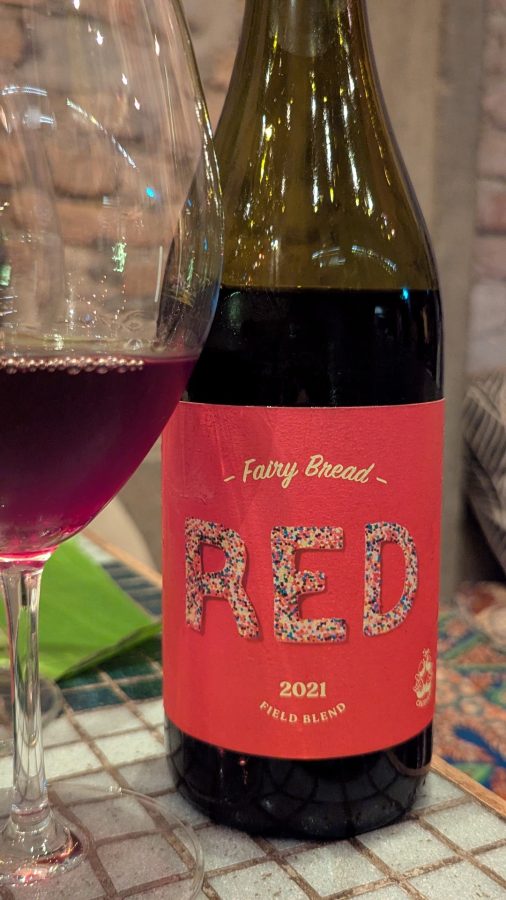
A few more traditional wines have been included in the wine list, as well. These selections, however, may be unfamiliar to many patrons, as they are Austrian and produced from lesser-known grape varieties such as Grüner Veltliner. However, read on, as there is a quiet revolution going on here in Malaysia with Austrian wine imports on the rise. While relatively new to Malaysia, wines have been made in Austria for centuries, with Grüner Veltliner accounting for a third of all Austrian grape plantings and deservedly the star of their wine realm. It is the perfect accompaniment for many Asian cuisines and dishes, and the spicy offerings at JOLOKO. This white varietal stands out for its crisp acidity, concentrated flavour, subtle spice, voluptuous texture, and noticeable minerality.
Appreciate these wines by ordering a bottle of Laurenz V ‘Singing’ Grüner Veltliner, a favourite of ours, with aromas of apple, peach, and citrus, plus the barest hint of white pepper. Its soft and juicy palate is supported by fine acidity. On the whole, we felt that the wines and cocktails here were every bit as imaginative (and occasionally irreverent) as the dishes on the menu!

However, JOLOKO isn’t just about the food and drink. It’s an experience — curated but not contrived. The staff are laid-back but sharp, the energy is high without being forced, and there’s a refreshing lack of pretense despite the obvious culinary ambition. On some weekends, things pick up late into the night, with DJs spinning vinyl and the courtyard turning into a dancefloor with a happy chaotic vibe. They also host communal brunch spreads, African food bazaars, organic and biodynamic wine tastings, and much more. (You can follow their Instagram account for regular updates and events @jolokokl.)
Now nearly seven years in, JOLOKO has very clearly found its rhythm — and built a loyal following, too. Our takeaway? It’s a unique restaurant that’s not chasing trends, and it’s not trying to be for everyone. But if you like your food bold, your drinks unapologetic, and your evenings unpredictable, it’s a solid bet. We loved it and are already looking forward to a return visit!
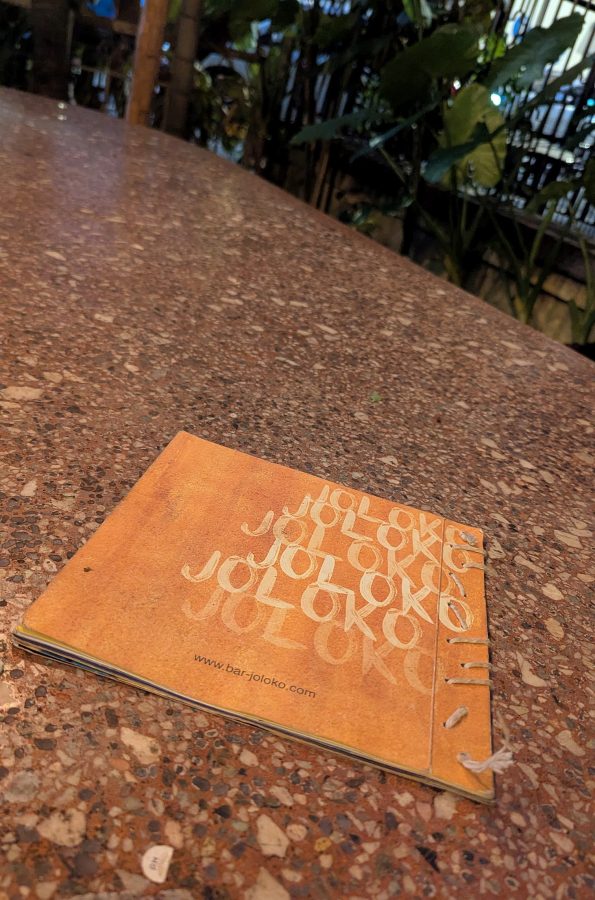
JOLOKO
43 Jalan Kamunting, Chow Kit
50300 Kuala Lumpur
T: 6011.6426 2645
W: www.bar-joloko.com